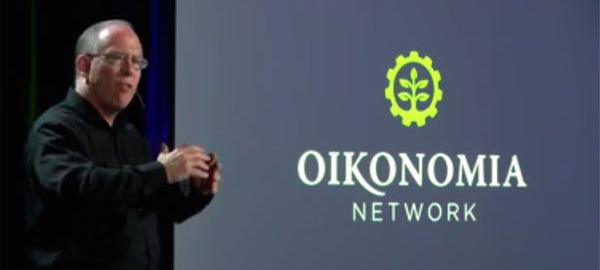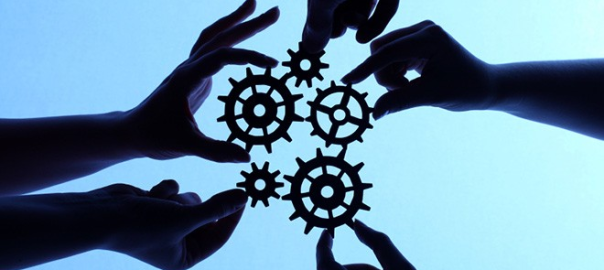Solving our intractable domestic and foreign policy crises will require much more that political compromise and diplomatic maneuvering. Our overextended federal systems and diminished influence abroad are signals of deeper issues. Conservatives press for reduced government and increased personal responsibility. Liberal/Progressive voices argue for better distribution of wealth that creates a just society. Conservatives are troubled by social elites proffering new moral standards even as they advocate for more government involvement in family and personal life in all non-sexual arenas. Liberal/Progressive leaders focus on structural changes that will even the economic playing field and open doors for historical underclasses to improve their situations.
Both groups have valid concerns. Both are concerned about government intrusion – but intrusion for one is justice for the other. When conservatives protest public school curricula, they are deemed intolerant, impervious to the needs of kids and out of touch with 21st century realities. When liberals are criticized for wasteful public spending and a lack of accountability, their response is to demand more money and label opponents “extremists” or (gasp!) part of the Tea Party. When conservatives are critiqued for a lack of social concern, they often resort to “family values speak” without mentioning the brokenness of families and communities. In foreign affairs, conservatives argue for national self-interest and realpolitik while liberals argue for human rights (while strangely ignoring the persecution of millions of Christians by Islamic regimes).
The foundational answer that begins to solve these issues is a recovery of the dignity of the human person. “Dignity” has been usurped by some to agitate for non-traditional marriage and sexual practices as well as promote euthanasia. In this essay, dignity is not a political term, but as essential part of being human, a quality that affects how we see each person we encounter and view the billions that share our planet.
Our Founders and Framers understood that all government authority is derived from the consent of the governed. The Preamble to the Constitution and the Bill of Rights ensure that the dignity, liberty and integrity of the human person is the starting point for a just society and equitable government. Yes, they neglected female and non-white persons and we paid for such tragic oversight with a Civil War, Suffrage Movements and, at last, Civil Rights in the 1960s. It took us too long to live up to our ideals.
The dignity of each human being is not an invitation to narcissism or solipsism. We are social creatures, made for both personal and relational flourishing. Human dignity is axiomatic. It is the starting point for further reflection of political and social structures. The rule of law, vital for liberty and prosperity, rests upon people of conscience following such laws and seeing the greater good in their discipline.
Dignity rests upon our anthropology. If human beings are the products if impersonal and mechanistic forces, with chance and time accounting for all facets of our being, then morality, purpose, and social cohesion are mere by-products of our survival instincts. If, however, human beings are created in the image of God, distinct yet integrated with the rest of creation and designed for meaningful relationships and work, the possibilities for moral and social well-being increase. If our humanness includes transcendent notions of right and wrong, longings for reciprocal love and the need to fulfill a purpose in life, then the nature of governmental and other subsidiary agencies will reflect these values.
Human dignity begins with conception and ends with natural coronation at the end of life. The immortals we encounter each day may stifle conscience and pursue selfish ends, but they remain of infinite value. Human dignity implies responsibility for our decisions and accountability toward others as we make our way in the world. Such a robust anthropology commends honest discussion of maleness and femaleness, marriage and family, religious and social issues. As persons created by God, we have a design and a destiny, proclivities and personal gifts. We possess freewill and our decisions affect others. We are moral creatures, even if we debate the fine points of particular ethical choices.
Human dignity includes respect for how we are made. Male and female share equal humanness, but they are designed differently. When we reject this design, we are lessening our humanity. We live in a fallen, flawed world deeply affected by our rebellion against God and the Good. This said, we retain our awe of Creation and an amazing gift of conscience. We wrestle with internal and external pressures toward self-destruction and self-realization. We inherently long for love even while we sabotage relationships. We are angry when innocents are hurt and killed and we hope our peccadilloes escape notice. What a paradoxical lot we are!
Back to our domestic and foreign issues.
With human dignity grounded in Creation as our starting point, new avenues of wisdom are possible. We will be skeptical of any agency with too much authority. We will hold ourselves and our public officials accountable for their stewardship of resources that are the fruit of our productive labor. We will care about national interests and aggressively pursue improvements in human rights around the world. We will hold the Islamic world accountable for its dhimmitude of non-Muslims and oppression of women. We will call on the Palestinian Authority to renounce terrorism and acknowledge Israel as a legitimate nation. We will call on Israel to negotiate with integrity the creation of a new neighboring state. We can amend or transform health care legislation into a comprehensive strategy to care for all without destroying choice and private sector enterprise.
Human dignity means we end abortion on demand while helping foster adoptions, care for moms and kids and hold the fathers accountable for their sexual activity. There is no such thing a sex without consequences and erotic fulfillment is not a civil right. We must end all forms of active euthanasia while wisely learning how to let nature take her course at the end of life.
When we begin with dignity, we end in liberty, opportunity, responsibility and the potential for personal and social flourishing. If we reduce ourselves to the products of impersonal nature, then might will make right and we enslave ourselves to the basest impulses found in our flawed natures.
Conservative and liberal friends, let’s start talking about what it means to be fully human and we may find new common ground.


